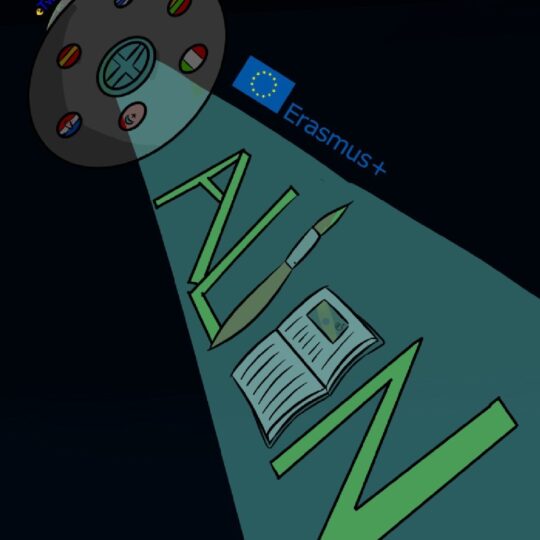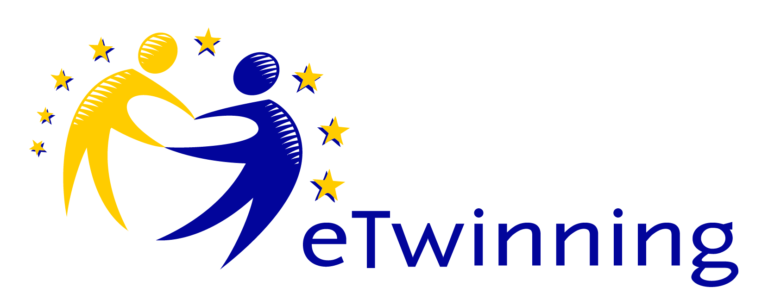
«Art & Literature in Education’s Nature! Is it an A.Li.E.N.?»
- An artful strategic school partnership!
- 5 countries
- 3 school years
- 300 Erasmus students
- 25 Erasmus teachers
ERASMUS KA229

Οur project entitled “Art & Literature in Education’s Nature! Is it an A.Li.E.N.?” is implemented by five schools: Turkey, Lithuania, Croatia, Italy and Greece (school applicant). It provides students with opportunities to respond to literature and Art; it gives students appreciation about their own cultural heritage as well as those of others; it helps students develop emotional intelligence and creativity; it nurtures growth and development of the student’s personality and social skills; Developing positive attitudes toward our own culture and the cultures of others we help for both social and personal development.
Our targets are
- to provide students with opportunities to respond to literature;
- to give students appreciation about their own cultural heritage as well as those of others;
- to help students develop emotional intelligence and creativity;
- to nurture growth and development of the student’s personality and social skills;
We strongly believe that:
- Exposing children to quality literature can contribute to the creation of responsible, successful, and caring individuals. In this way future leaders will be nurtured by developing students’ social and emotional skills, communicating internationally in the arts.
- Arts education is a means of developing critical and creative thinking by developing skills that enhance performance in non-arts academic subjects.
- Emphasis on both Literature and Arts education can have a positive impact on the three subsets of skills that we define as “skills for innovation”: technical skills; skills in thinking and creativity; behavioural and social skills. It is crucial to empower our young generation to tackle with future challenges and to be competent enough for the future world where they will be leading the society and economy as adults. development of the student’s personality and social skills
Our objectives are:
- to improve -students competence of Learning to Learn
- to share, pass on and construct Collective Memory
- to tackle early school leaving and disadvantage
- to include innovative learning approaches
- to enable cross-curricular collaboration
- to promote the STEAM approach through interdisciplinary teaching with the involvement of all academic disciplines
- to promote inclusive education.
Plans
A rich variety of activities is planned to take place before, during and after the LTTAs: workshops, logo, poster, even sonnet creations, museum visits, cultural events, tales & legends are to immerge everyone into European linguistic, literature and art background and history. A creative combination of evaluation and dissemination activities, drama and short play presentations, mini films, seminar events, website designing and administrating, storytelling and meet the author (either virtually or metaphorically) sessions, even transforming school walls to “art galleries” will be presented in our S.H.AR.E. ending festival hosted by the project coordinating school in Greece.
Methodology
The methodology used is the student centred approach, inquiry based and cooperative learning, tailoring instruction to meet individual student needs (inclusive education methodology). Also the Project-Based and game-based learning with challenging activities, the Museum and gallery pedagogic strategies and the experiential education learning. During public speaking sessions (National oral literature, Art on the walls, My Erasmus story) we focus on integrating intensive experience and skill-building into the fabric of education. This approach to teaching and learning is centered on our belief that education should place equal emphasis on development of character and the intellect.
Letting others know...
The results and impact of our project envisaged are disseminated on regular basis via our website, the Erasmus and eTwinning Platforms.
In situ diffusion activities in all countries highlight the potential impact of our efforts and reinforce longer terms benefits. The A.Li.E.N. project footprint inspires our school and neighbour school communities and creates a school atmosphere with more attractive education and training implementations, in line with nowadays individual needs and expectations.
The increased competence in transversal skills (like social, civic, intercultural and language competences, critical thinking, digital skills and media literacy) will be the long lasting benefits of our Project.

